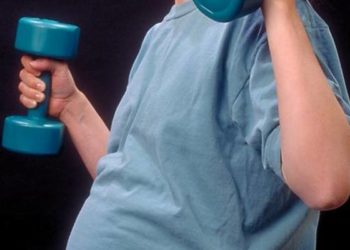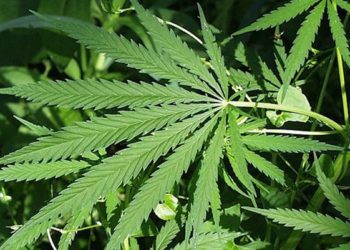Wellness Check: Spirituality
Spiritual Care training program improved nursing competency to provide spiritual care
1. The mean spiritual care competence score was higher in the intervention group compared to the control group after the intervention.
2. There was an increase in mean spiritual care competence score in the intervention group between pre- and post-intervention but no change in the control group.
Evidence Rating Level: 1 (Excellent)
Health is defined by the World Health Organization as a state of complete physical, mental, and social well-being. Spiritual care can be an intricate part of one’s mental well-being, especially in hospitalized patients. However, how healthcare professionals can become more empowered to deliver spiritual care to their patients is unclear. This study studied if a Nursing Spiritual Care educational program can help improve spiritual care competence in nurses.
This was a randomized controlled trial that enrolled 134 nurses working in one hospital in Malaysia. Nurses who were on medical or maternity leave or who were not directly involved in providing care were excluded. 58 nurses were randomized to the intervention group, which received the Nursing Spiritual Care Program delivered in three, 3-hour sessions over 9 days, that encompassed 1) introduction to spiritual care and self-awareness, 2) assessment of patient’s spiritual needs, and 3) implementation of nursing spiritual care. 60 nurses were randomized to the control group, which received an ordinary spiritual care program. The primary outcome was Spiritual Care Competence assessed before and after the intervention using a 27-item self-assessment survey.
The results demonstrated that the mean spiritual care competence score was higher in the intervention group compared to the control group post-intervention. Specifically, there was an increase in mean spiritual care competence score in the intervention group between pre- and post-intervention but no change in the control group. This study was limited by participant homogeneity and may be limited in its generalizability. However, these results suggest that specific programs designed to improve healthcare worker competence in providing spiritual care may be feasible and should be further explored.
Spirituality and religiosity were associated with positive post-traumatic growth in nurses
1. The strength of religious beliefs was positively correlated with post-traumatic growth.
2. Specifically, transcendent experiences, meaningfulness, and trust were spiritual dimensions that positively correlated with post-traumatic growth while spiritual activities and acceptance were negatively correlated with PTG.
Evidence Rating Level: 2 (Good)
Caring for patients during the COVID-19 pandemic posed difficult physical and psychosocial challenges for healthcare workers, especially those working in the intensive care units (ICUs). After extremely stressful situations, some theorize that there can be positive psychological growth, which is termed post-traumatic growth (PTG). However, what constitutes as protective and risk factors for PTG in healthcare workers is unclear. This study examined the relationship between PTG and religiosity/spirituality (R/S) among ICU nurses caring for COVID-19 patients.
This was a cross-sectional study that included 120 ICU nurses working across nine different hospitals in Poland. Nurses who were not employed during the COVID-19 pandemic or lacked informed consent were excluded. The primary outcome measured was PTG, as measured using the standardized Post-Traumatic Growth Inventory questionnaire. Exposures were religiosity and spirituality, measured using two standardized questionnaires: the Santa Clara Strength of Religious Faith Questionnaire, and the Spiritual Attitude and Involvement List.
The results demonstrated that the strength of religious beliefs had a positive correlation with post-traumatic growth. Specifically, transcendent experiences, meaningfulness, and trust were spiritual dimensions that were positively correlated with PTG while spiritual activities and acceptance were negatively correlated with PTG. This study was limited by its small size and the cross-sectional nature, which precluded causal inference. However, these results suggest possible benefits of spirituality/religiosity in PTG among healthcare workers and should be considered as possible areas of support professional organizations could make accessible to healthcare workers.
Yoga And Mindfulness As Potential Treatment Adjuncts For Schizophrenia
1. Mind-body therapies are superior to routine care and rehabilitation at reducing schizophrenia symptom severity.
2. Yoga and mindfulness showed the strongest effect among other mind-body therapies in reducing schizophrenia symptoms.
Evidence Rating Level: 1 (Excellent)
Mind-body therapies (MBT) like yoga and tai chi show promise as complementary approaches to the treatment of some diseases. In the case of schizophrenia, there is growing evidence for the potential of yoga and mindfulness to reduce symptom severity. However, a comparison of the effectiveness of different MBTs in the treatment of schizophrenia has not yet been investigated.
This systematic review looked at randomized control trials (RCT) published up until November 2022 which investigated the effects of MBTs on reducing schizophrenia symptom severity. 22 RCTs that investigated the effects of different MBTs on schizophrenia and had at least one of the following outcome measures: schizophrenia symptom severity, quality of life, motor capacity, functional capacity, cognitive function, social and occupational function, and degree of depression were included. Non RCTs and incomplete studies were excluded. The effects of yoga, yijin jing, mindfulness, baduanjin, and tai chi were compared against routine schizophrenia care and rehabilitation. The primary outcome measured schizophrenia symptom severity using the positive and negative syndrome scale.
Compared to routine care MBTs were more effective at reducing positive and negative schizophrenia symptoms. Yoga and mindfulness were more effective than other MBTs. Yoga was the most effective at reducing negative symptoms and was the second best at reducing positive symptoms. Mindfulness was the most effective at reducing positive symptoms. A limitation of this study is that the practice of these MBTs in terms of duration, intensity, and frequency varied among the RCTs. Therefore, we cannot accurately comment on how precisely to employ this intervention as a complement to routine care. Nevertheless, the study ventures into a relatively new area of study and provides support for the potential use of yoga or mindfulness as an adjunct to the conventional treatment of schizophrenia in the future.
Image: PD
©2024 2 Minute Medicine, Inc. All rights reserved. No works may be reproduced without expressed written consent from 2 Minute Medicine, Inc. Inquire about licensing here. No article should be construed as medical advice and is not intended as such by the authors or by 2 Minute Medicine, Inc.



![2MM: AI Roundup- AI Cancer Test, Smarter Hospitals, Faster Drug Discovery, and Mental Health Tech [May 2nd, 2025]](https://www.2minutemedicine.com/wp-content/uploads/2025/05/Untitled-design-350x250.png)




